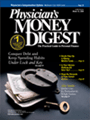To Our Health…Better Than Most Think
It's naïve to think that the mediacan be providers and protectors ofhonest news—our sentinels oftruth. Oh well, there's alwayshope. My experience is that while news-folksare at best erratic when coveringimportant issues in general, they aredownright awful when it comes tohealth care matters. Their overemphasison the negative is breathtaking.
Pack Mentality
The media's conventional (ie, brainless)wisdom is that doctors are greedy,hospitals are incompetent, and drug companiesare heartless—for which, we citizens,pay too much money. The truth isthat, while imperfect, all deserve sizablecredit for improving the human condition.
I'll never claim that our health caresystem is perfect—I'd never get awaywith it. Few better recognize the system'sdefects beyond America's doctors. Theytoil in the arena every day and know wellits flaws. They're also acquainted with itswonders, or they would give up.
The Value of Investment in HealthCare
The American Hospital Association(AHA) has issued an enlightening reportcalled . Avoiding emotion—although theirultimate point is very emotional—theAHA study uses undeniable facts to makeits point that the nation is clearly betteroff health-wise than it was 20 years ago.
A Spotlight
Beyond highlighting steady declinesin mortality and disability rates over 2decades, the report focuses on four majordisease conditions where medicine hasachieved miraculous results. Just consider:
- Heart attack—About 1.5 millionAmericans suffer from heart attacks annually.Since 1980, the death rate for thisdeadly illness has been reduced by morethan half, and recurrent heart attackshave been chopped by another 25%.
- Diabetes—Although type 2 diabetesafflicts about 17 million citizens, theincidence of its many risk conditions hasbeen drastically reduced in the past 20years. Effective therapy has been provento actually save significant money.
- Stroke—The third leading cause ofannual US deaths, stroke also bringsmajor long-term disability for 65% of itssurvivors. Mortality rates have declinedby more than one third since 1980.
- Breast cancer—About 2.2 millionUS women are sufferers. Mortality, 5-year survival, and early diagnosis ratesare moving in a very positive direction.
The AHA argues that health improvementssince 1980 have prevented nearly500,000 deaths and 200 million+ hospitaldays. While that might overstatethings, their essential point is sound.Despite relentless media attacks, Americanhealth care has lofty achievements—clinically and financially.
